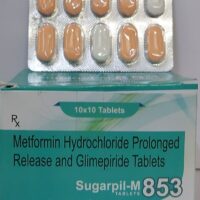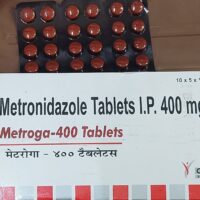Table of Contents
ToggleIntroduction
Growing a tiny human inside of you is an incredible journey. Nourishing your changing body with the right vitamins and minerals is a crucial part of ensuring both your health and your baby’s optimal development. While a balanced diet is always the foundation, pregnancy brings with it an increased need for specific nutrients. This guide will delve into the essential vitamins and minerals you need during your pregnancy in India, explain their importance, and give you practical tips for getting them through delicious and familiar foods…
Why Are Vitamins and Minerals So Important During Pregnancy?
During pregnancy, your body undergoes a remarkable transformation to nurture a growing baby. This incredible feat requires a significant increase in the production of new cells, tissues, and organs. Essential vitamins and minerals act as the building blocks and facilitators for these vital processes, ensuring your baby’s healthy development and your own well-being throughout the journey.
Here’s a closer look at the specific ways vitamins and minerals contribute to a healthy pregnancy:
Building a Strong Foundation:
-
- Neural Tube Development: Folate (folic acid) plays a critical role in the formation of the neural tube, which eventually develops into the baby’s brain and spinal cord. Deficiencies during this crucial early stage can lead to serious birth defects like spina bifida.
-
- Bone Development: Calcium, Vitamin D, and Phosphorus work together to build strong bones and teeth for your baby. Adequate intake throughout pregnancy helps prevent deficiencies and ensures proper mineralization for a healthy skeletal system.
Supporting Essential Functions:
-
- Cellular Health and Energy Production: B vitamins, like Vitamin B12 and B6, are essential for various cellular processes, including energy production and metabolism. They also play a role in the formation of red blood cells, which carry oxygen throughout the body.
-
- Immune System Function: Vitamin C, Vitamin D, Zinc, and Iron are all crucial for maintaining a strong immune system, protecting both you and your developing baby from infections and illnesses.
Maintaining Your Health:
-
- Preventing Anemia: Iron deficiency is a common concern during pregnancy, leading to anemia. This can cause fatigue, shortness of breath, and impact the oxygen supply to your baby. Iron is essential for red blood cell production, ensuring proper oxygen transport throughout your body.
-
- Regulating Blood Pressure: Calcium and Magnesium work together to regulate blood pressure, reducing the risk of pregnancy complications like preeclampsia, a condition characterized by high blood pressure and protein in the urine.
Supporting a Healthy Pregnancy:
-
- Reducing the Risk of Birth Defects: Adequate intake of folic acid, as mentioned earlier, significantly reduces the risk of neural tube defects. Additionally, proper levels of Vitamin D can contribute to a lower risk of preeclampsia and gestational diabetes.
-
- Promoting Fetal Growth: A balanced intake of essential vitamins and minerals like Vitamin A, Vitamin C, and Protein supports healthy fetal growth and development throughout all trimesters.
- The impact of deficiencies: While a balanced diet is ideal, sometimes deficiencies can occur due to various factors like morning sickness, food aversions, or certain medical conditions. Here are some potential consequences of vitamin and mineral deficiencies during pregnancy:
-
-
- For the Baby: Low birth weight, premature birth, increased risk of birth defects, impaired cognitive development.
-
-
-
- For the Mother: Anemia, fatigue, increased risk of infections, osteoporosis (bone weakening), postpartum depression.
-
Remember: Consulting your doctor and getting regular prenatal checkups is vital to monitor your nutrient levels and address any potential deficiencies early on. They can guide you on personalized dietary plans and recommend prenatal vitamin supplements if needed.
By prioritizing a balanced diet rich in essential vitamins and minerals, you’re giving yourself and your baby the best chance for a healthy and joyful pregnancy.
Key Vitamins and Minerals for Pregnant Women in India
Congratulations on your pregnancy! As your body embarks on this incredible journey of creating new life, it’s essential to ensure you’re getting the right nourishment. A balanced and wholesome diet packed with essential vitamins and minerals is key to supporting both your health and your baby’s development.
While many vital nutrients can be obtained through a well-rounded Indian diet, pregnancy often increases the body’s requirements for specific vitamins and minerals. Here’s a closer look at some of the most crucial ones for pregnant women in India:
1. Folic Acid (Vitamin B9):
-
- Importance: Folic acid is absolutely essential during the first trimester, particularly in the crucial first few weeks after conception. It plays a vital role in the proper formation of the neural tube, which develops into the baby’s brain and spinal cord. Deficiencies during this critical stage can lead to serious birth defects like spina bifida.
-
- Recommended Dosage: The recommended daily intake of folic acid for pregnant women in India is 600 micrograms (mcg). It’s best to start taking folic acid supplements at least three months before conception and continue throughout the first trimester.
-
- Rich Indian Food Sources: While folic acid is best obtained through supplements during pregnancy, some Indian foods are naturally good sources. These include:
-
- Leafy green vegetables like spinach (palak), methi leaves, mustard greens (sarson ka saag)
-
- Lentils (dal) – a staple in Indian cuisine – are particularly rich in folates. Mun dal (moong dal) and masoor dal are good options.
-
- Fortified breakfast cereals can be a convenient way to boost folic acid intake.
-
- Rich Indian Food Sources: While folic acid is best obtained through supplements during pregnancy, some Indian foods are naturally good sources. These include:
2. Iron:
-
- Importance: Iron is crucial for the production of red blood cells, which carry oxygen throughout the body. During pregnancy, your blood volume increases significantly to support the growing baby. Iron deficiency can lead to anemia, causing fatigue, weakness, and shortness of breath. It can also impact the oxygen supply to your baby.
-
- Recommended Dosage: The recommended daily intake of iron for pregnant women in India is 30 milligrams (mg). This daily intake can be satisfied by having Ferriwok-XT Iron supplement.
-
- Rich Indian Food Sources: Fortunately, many delicious Indian foods are packed with iron. Here are some excellent options:
-
- Meat, poultry, and fish are good sources of heme iron, which is more readily absorbed by the body. Lean meats like chicken and fish are preferable.
-
- Vegetarians and vegans can get iron from legumes (dal), beans (rajma, chana), and green leafy vegetables. However, the iron in these plant-based sources is non-heme iron, which has a lower absorption rate. Pairing iron-rich plant-based foods with a source of vitamin C (like lemon juice or amla) can improve iron absorption.
-
- Jaggery (gur) is a traditional Indian sweetener rich in iron and other minerals. A small amount can be added to sweets or drinks for a healthy twist.
-
- Rich Indian Food Sources: Fortunately, many delicious Indian foods are packed with iron. Here are some excellent options:
3. Calcium:
-
- Importance: Calcium is a vital mineral for building strong bones and teeth, both for you and your developing baby. During pregnancy, your baby draws calcium from your bones to support their skeletal development. Adequate calcium intake helps prevent deficiencies and ensure proper mineralization for a healthy bone structure. One of the easiest ways to get Vitamin D3 Calcium is through Vitamin D3 supplements.
-
- Recommended Dosage: The recommended daily intake of calcium for pregnant women in India is 1000 milligrams (mg). One of the high selling calcium supplements is Cipcal XT and Geomax D3 Strong.
-
- Rich Indian Food Sources: Dairy products are a well-known source of calcium. Here are some Indian options:
-
- Milk, curd (yogurt), buttermilk (chaas), paneer (cottage cheese) are all excellent sources of readily absorbable calcium. Including a variety of dairy products in your diet is a great way to meet your calcium needs.
-
- For those who are lactose intolerant or follow a vegetarian diet, there are alternative sources of calcium. Ragi (finger millet) is a powerhouse of calcium and can be incorporated into rotis, dosa batter, or porridge. Sesame seeds (til) are another good option and can be sprinkled on vegetables, salads, or added to curries. Dark green leafy vegetables like spinach (palak) also contribute some calcium.
-
- Rich Indian Food Sources: Dairy products are a well-known source of calcium. Here are some Indian options:
4. Vitamin D:
-
- Importance: Vitamin D plays a crucial role in calcium absorption and bone health. It also supports the immune system function and promotes healthy cell growth. While some Vitamin D is synthesized by the skin through sun exposure, this may not be sufficient during pregnancy.
-
- Recommended Dosage: The recommended daily intake of Vitamin D for pregnant women in India can vary depending on individual needs and sun exposure. Consult your doctor for personalized advice. Supplementation is often recommended for pregnant women in India due to limited sun exposure and potential deficiencies. Our Best selling Vitamin D products are
-
- Rich Indian Food Sources: There aren’t many natural food sources rich in Vitamin D but you can get your dosage of Vitamin D from these supplements.
5. Iodine:
-
- Importance: Iodine is essential for the production of thyroid hormones, which regulate metabolism and play a critical role in the healthy brain development of your baby. Iodine deficiency during pregnancy can lead to serious developmental problems in the child.
-
- Recommended Dosage: The recommended daily intake of iodine for pregnant women in India is 220 micrograms (mcg).
-
- Rich Indian Food Sources: Iodized salt is the most common and effective way to ensure sufficient iodine intake in India. Using iodized salt for regular cooking is strongly recommended. Additionally, seafood and dairy products like milk and yogurt provide some iodine.
6. Other Essential Vitamins and Minerals:
While we’ve delved into the most critical vitamins and minerals during pregnancy, several others play supporting roles in healthy fetal development and your well-being. Here’s a brief overview:
-
- Vitamin C: This antioxidant supports your immune system, aids iron absorption, and promotes tissue health. Citrus fruits, amla (Indian gooseberry), guava, tomatoes, and leafy greens are excellent sources of Vitamin C.
-
- Vitamin B12: Essential for the development of the baby’s nervous system and the production of red blood cells. If you follow a vegetarian or vegan diet, your doctor will likely recommend a B12 supplement, as it’s mainly found in animal products.
-
- Zinc: Supports the immune system and cell growth. Meat, poultry, dairy products, beans, nuts, and fortified cereals are good sources.
-
- Omega-3 fatty acids: These healthy fats contribute to the baby’s brain and eye development. Fatty fish (like salmon and mackerel ), flaxseeds, walnuts, and chia seeds are good options.
We at mygenericmeds give utmost importance to high quality branded MultiVitamins and you can order high quality Multi vitamins from here. One of our high selling MultiVitamin products is A vit Z tables (Excellent discount available now, Order now!!)
Should I Take Prenatal Vitamins?
With so many specific nutrient requirements, it might seem daunting to obtain them all through diet alone, especially if you experience nausea or food aversions that are common during early pregnancy. Prenatal vitamins can be a valuable tool to fill potential nutritional gaps and ensure you’re getting optimal levels of essential vitamins and minerals.
Here’s why prenatal vitamins are often beneficial during pregnancy in India:
-
- Addressing Deficiencies: Many women in India have pre-existing nutritional deficiencies, such as anemia due to iron deficiency. A prenatal vitamin provides targeted nutrients in safe and effective doses to help address these deficiencies.
-
- Ensuring Adequate Intake: Even with a balanced diet, it can be challenging to meet the substantially increased nutrient demands of pregnancy. Prenatal vitamins act as an “insurance policy,” ensuring you are getting sufficient levels.
-
- Supplementing Specific Nutrients: Some nutrients, like folic acid and vitamin D, are particularly crucial during pregnancy, and it can be difficult to ensure adequate intake through food alone. Prenatal vitamins with appropriate dosages of these nutrients provide convenient supplementation.
It’s essential to consult your doctor about prenatal vitamins before starting them. They can recommend the best choice for your specific needs and ensure it’s compatible with any existing medications or supplements you might be taking.
Important Note: Prenatal vitamins are meant to supplement a healthy diet, not replace it. Prioritizing whole, nutritious foods is still the primary way to nourish yourself and your baby.
Diet Tips for Getting Essential Nutrients During Pregnancy
While supplements can be useful, the foundation of a healthy pregnancy diet is filled with delicious and nutritious whole foods. Traditional Indian cuisine offers a vast array of options rich in essential vitamins and minerals. Here are some tips to maximize your nutrient intake:
-
- Focus on a Balanced Diet:
-
- Variety is Key: Include a diverse range of foods from all food groups – fruits, vegetables, whole grains, legumes, dairy (or non-dairy alternatives), nuts, and seeds. A colorful plate is usually a good indicator of getting various nutrients.
-
- Choose Whole Foods: Opt for whole, unprocessed foods as often as possible. Minimize refined grains, processed snacks, and sugary drinks, which offer minimal nutritional value.
-
- Include Iron-Rich Foods Daily: Make a conscious effort to include iron-rich foods in your meals. Pair plant-based sources of iron with a source of Vitamin C to boost absorption. For example, having a glass of nimbu pani (lemon water) with your dal is an easy and delicious way to enhance iron absorption.
-
- Sample Indian Meal Ideas:
-
- Breakfast: Vegetable poha topped with nuts and a glass of milk, whole-wheat paratha with a side of paneer/yogurt, ragi dosa with coconut chutney, besan chilla with a dollop of curd.
-
- Lunch: Lentil soup (dal) with brown rice/roti, a green vegetable subzi, a bowl of salad with sprouted chickpeas or beans, and yogurt (lassi or chaas) to finish.
-
- Dinner: Experiment with different dals (mung, masoor, chana), vegetable-based curries, grilled fish/chicken with a side of salad, and whole-wheat rotis.
-
- Snacks: Keep nutrient-dense snacks handy – fresh fruits, nuts and seeds, roasted chana, boiled eggs, yogurt with berries.
-
- Dealing with Pregnancy Food Challenges:
-
- Nausea and Food Aversions: If you experience morning sickness, opt for blander foods and eat smaller, more frequent meals throughout the day. Ginger is a natural remedy for nausea – include it in teas or add grated ginger to your food.
-
- Food Safety and Hygiene: Pregnancy makes you more susceptible to food-borne illnesses, so ensuring food safety is paramount. Wash produce thoroughly, cook meat, fish, and eggs properly, and avoid raw or undercooked foods.
-
- Consult a Nutritionist:
-
- If you have specific dietary restrictions (vegetarianism, veganism, or allergies) or struggle to create a balanced meal plan, consult a nutritionist who can offer personalized guidance and recommendations tailored to your needs.
-
- Consult a Nutritionist:
-
- Listen to Your Body:
-
- During pregnancy, your body gives you cues about what it needs. Stay hydrated by drinking plenty of water throughout the day. Cravings can sometimes indicate a nutrient deficiency, so pay attention to your body’s signals and opt for healthier choices to satisfy them.
-
- Listen to Your Body:
Additional Concerns for Pregnant Women in India
Pregnancy can bring about specific challenges depending on individual circumstances. Let’s address some common concerns for expecting mothers in India:
-
- Vegetarian and Vegan Pregnancies: With careful planning, it’s entirely possible to have a healthy pregnancy on a vegetarian or vegan diet. Focus on protein-rich foods like lentils, beans, tofu, nuts, and seeds, along with fortified cereals. Consult a nutritionist for guidance on supplementing specific nutrients like B12 and DHA (omega-3 fatty acids).
-
- Anemia: This condition is prevalent among pregnant women in India. Prioritize iron-rich foods and work with your doctor to manage anemia, which may include incorporating an iron supplement.
-
- Pre-existing Health Conditions: If you have underlying health conditions like diabetes or thyroid issues, it’s crucial to work closely with your doctor to manage them during pregnancy. They may need to adjust your medication dosages or recommend specific dietary modifications.
-
- Limited Access to Certain Foods: If affordability or availability of certain nutrient-rich foods is a concern, explore local, seasonal vegetables and fruits, which tend to be more accessible and budget-friendly.
Frequently Asked Questions (FAQs)
Pregnancy is a time filled with both excitement and a whirlwind of questions. Let’s address some common concerns that expecting mothers in India may have:
-
- Can I get all my vitamins and minerals from food alone?
While a wholesome, balanced diet should always be the foundation, it can be challenging to meet all of your increased nutrient needs through food alone, especially during pregnancy. Prenatal vitamins can bridge nutritional gaps and ensure you’re getting optimal levels of essential vitamins and minerals.
-
- Are there any risks to taking too many vitamins?
Yes, it’s possible to overdo it with certain vitamins and minerals. Taking megadoses of supplements can have adverse effects. Always consult your doctor before starting prenatal vitamins, and don’t exceed the recommended dosages.
-
- Should I take a multivitamin and a separate folic acid supplement?
This depends on the specific multivitamin you choose. Some multivitamins contain adequate folic acid, while others may not. Check the label carefully and consult your doctor to decide if you need a separate folic acid supplement, especially during the crucial first trimester.
-
- What if I miss taking my prenatal vitamin for a day?
Don’t worry! It’s normal to occasionally forget. Just try to be consistent with taking your prenatal vitamins for the best benefit. However, if you become aware that you’ve missed several doses in a row, consult your doctor.
-
- Can I eat spicy food during pregnancy?
In moderation, yes! There’s no evidence that spicy food harms the baby. However, if you experience digestive discomfort like heartburn, it’s best to adjust the spice level to suit your tolerance.
-
- Is it safe to fast while pregnant?
Fasting, especially for extended periods, is generally not recommended during pregnancy. If you observe religious or cultural practices involving fasting, always consult your doctor for personalized guidance to ensure your safety and the baby’s well-being.
-
- My doctor recommended an iron supplement. Does this mean I have anemia?
Not necessarily. Iron supplementation is often a precautionary measure during pregnancy, even if you don’t have overt anemia, as the demand for iron increases significantly. However, your doctor may order blood tests to confirm your iron levels and diagnose anemia if needed.
-
- How much weight gain is considered healthy during pregnancy?
Healthy weight gain during pregnancy varies from person to person depending on factors like your pre-pregnancy weight and BMI. Your doctor is the best person to guide you on appropriate weight gain goals throughout the nine months.
Important Note: These FAQs provide general information. It’s essential to consult your doctor for personalized advice regarding your pregnancy, nutrition, and any specific concerns you may have.
Conclusion
Nourishing your body during pregnancy is a beautiful act of love for yourself and your growing baby. By prioritizing a balanced diet rich in essential vitamins and minerals, you’re providing the building blocks for optimal fetal development and promoting your own health and well-being throughout this journey.
Remember, every pregnancy is unique, and your nutritional needs may vary throughout the different stages. Here are some key takeaways:
-
- Prioritize Whole Foods: Choose a variety of fresh fruits, vegetables, whole grains, legumes, lean proteins, and healthy fats. Traditional Indian cuisine offers an abundance of nutrient-dense options.
-
- Supplement Wisely: Prenatal vitamins can be a valuable addition to your diet, ensuring you meet your increased nutrient needs. Always consult your doctor before starting any supplements.
-
- Listen to Your Body: Pregnancy often comes with cravings and food aversions. Pay attention to your body’s signals and make healthy choices to satisfy them. Stay hydrated by drinking plenty of water throughout the day.
-
- Manage Challenges: Anemia, food intolerances, and nausea are common during pregnancy. Work with your doctor and a nutritionist to create a plan that addresses these issues and supports a healthy pregnancy.
-
- Seek Support: Don’t hesitate to ask for help! Consult your doctor, a registered nutritionist, or a lactation consultant for personalized advice and guidance throughout your pregnancy and beyond.
Pregnancy is a time of immense transformation and a beautiful opportunity to nourish yourself and your baby from the inside out. Embrace this journey with informed choices and remember, by taking care of yourself, you’re also nurturing the precious life growing within you.
Additional Resources (Optional):
If you’re looking for further information and resources, you might find the following helpful:
-
- Ministry of Health and Family Welfare, Government of India: Provides resources and guidelines for maternal health and nutrition.
-
- Indian Council of Medical Research (ICMR): Offers research-based recommendations for nutrition during pregnancy.
-
- Reputable pregnancy and nutrition websites/apps: Many websites and apps offer reliable information, meal planning tools, and recipes tailored to pregnancy.
Disclaimer: This blog post is intended for informational purposes only and should not replace personalized advice from a qualified healthcare professional. Always consult your doctor regarding your specific pregnancy, dietary needs, and any concerns you may have.







 Sugarpil-M853 SR Tab 10s
Sugarpil-M853 SR Tab 10s  METROGA-400 TAB 10S
METROGA-400 TAB 10S
[…] By taking these precautions and seeking prompt medical care when necessary, children and pregnant women can be protected from the potential dangers of dengue fever. Check our Blog on Role of vitamins for healthy pregnancy. […]